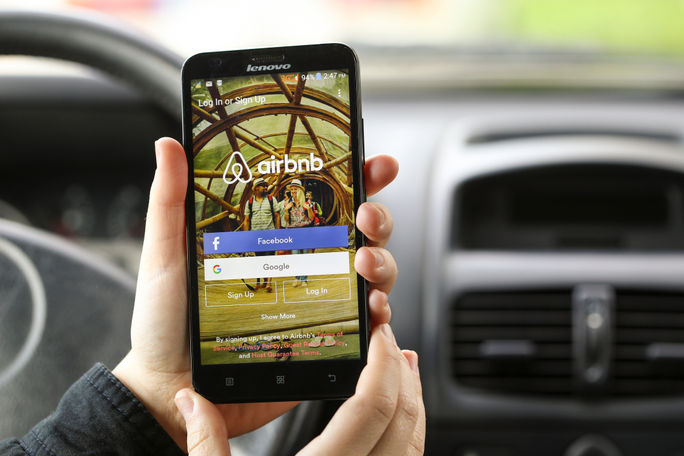People who have plans to visit New York City will likely soon find it significantly harder to book a private-home vacation rental. That’s because, on September 5, the Big Apple’s new Local Law 18, also known as the Short-Term Rental Registration Law, will come into effect.
The legislation, which was officially adopted in January 2022, requires short-term rental hosts to register with the Mayor’s Office of Special Enforcement (OSE) and, in doing so, acknowledge and comply with certain standing regulations.
It also prohibits such online booking service platforms as Airbnb, Vrbo and others from processing transactions for any short-term rental properties that remain unregistered.
Short-term rentals, at least in this case, are defined as entire apartments or homes rented out to visitors for any period of less than 30 days. Registration is limited to the people who actually permanently occupy the unit of housing in question.
Even if your property does qualify for registration as a vacation rental, the city charges a registration fee of $145. “There are penalties for both hosts and booking services who fail to comply with the requirements of the law,” OSE affirmed.
The OSE also may not authorize registration on certain types of units, such as rent-regulated and NYC Housing Authority units; and will be required to maintain a list of buildings where short-term rentals are prohibited, either by the law, or because of the terms of these buildings’ own leases and occupancy agreements.
“Hosts (whether owners or tenants) cannot rent out an entire apartment or home to visitors for fewer than 30 days,” the OSE’s website states. “This applies to all permanent residential buildings, regardless of the number of units.”
The rules state that short-term rentals are only allowed if permanent residents are staying in the same unit or apartment as their guests, and caps the number of paying guests permitted at one time to just two. “The person renting out the home or apartment must ‘maintain a common household’ with the guests. Otherwise, the short-term rental is illegal,” the OSE said.
Class B multiple dwellings are the only property types that are exempt from the short-term rental registration requirement for, but most private homes won’t qualify under that designation. “Most residential buildings that people can rent or own to live in full time are not Class B multiple dwellings,” the office said. This category, instead, is restricted to certain lodging types, like hotels, boarding houses and college dormitories.
Christian Klossner, Executive Director of the Mayor's OSE, said registration, "creates a clear path for hosts who follow the city’s laws and protects travelers from illegal and unsafe accommodations." In an emailed statement, he told USA Today, "We have consistently worked with hosts and platforms to ensure they are aware of their requirements under the law, and intend to continue doing so before enforcement begins Sept. 5.”

Airbnb mobile app. (Source: GoodLifeStudio/iStock/Getty Images Plus)
How Will This Impact Travelers?
So, how will the law’s upcoming enactment limit travelers’ options or hinder their ability to book hotel-alternative accommodations in NYC?
“It seems clear to me, based upon the current speed at which the city is processing applications for hosts, that a lot of supply will drop out of what's currently available,” Sean Hennessey, clinical associate professor at the NYU School of Professional Studies’ Jonathan M. Tisch Center of Hospitality, told USA Today.
As of Monday, the OSE had reviewed only 744 applications out of 2,789 that have thus far been submitted. Hennessey said that, due to this “huge backlog” of applications, many short-term rentals be unable to get approved before the law goes into effect.
Unregistered properties will no longer be bookable, but travelers who have existing reservations could potentially also run into problems. Hennessey said that, although hosts are likely to update upcoming guests, it would “prudent” for travelers to reach out directly to determine whether their plans might be disrupted.
Airbnb, the dominant short-term rental booking platform in NYC, this week stopped accepting reservations for properties whose hosts had not provided registration numbers, but is also not cancelling any existing bookings for dates through December 1.
For the latest travel news, updates and deals, be sure to subscribe to the daily TravelPulse newsletter here.
Topics From This Article to Explore